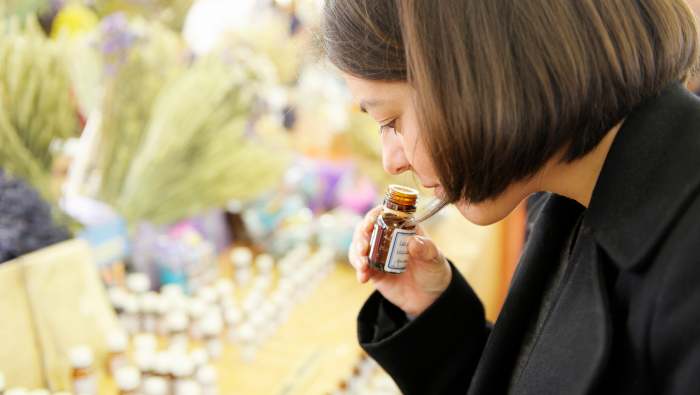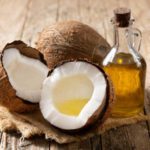Essential Oils for Anxiety: A Comprehensive Guide
In today’s fast-paced world, anxiety has become an increasingly common problem.
While numerous treatments are available, some seek alternative remedies, such as essential oils.
Essential oils are highly concentrated plant extracts with various health benefits, including reducing anxiety symptoms.
In this article, we’ll look closer at crucial oils for anxiety and their effectiveness in managing this condition.
Anxiety is a common mental health issue that affects millions of people worldwide.
While many people turn to conventional treatments such as medication and therapy, some seek natural remedies like essential oils.
Essential oils are highly concentrated plant extracts used for centuries for their medicinal properties.
They are known to have a calming effect on the mind and body, making them an ideal choice for managing anxiety.
What is Anxiety?
Anxiety is a natural stress response and part of our body’s “fight or flight” response. It’s a fear, unease, or worry ranging from mild to severe.
Anxiety can be a normal part of life, but it can become overwhelming for some people and interfere with their daily activities.
The Causes of Anxiety
Many factors can contribute to the development of anxiety.
Some common causes of stress include genetics, brain chemistry, environmental factors, and life events.
Stressful life events, such as a death in the family, a job loss, or a relationship breakup, can trigger anxiety in some people.
Conventional Treatments for Anxiety
Several conventional treatments are available for anxiety, including medication, therapy, and lifestyle changes.
Medications such as antidepressants and anti-anxiety drugs can effectively reduce anxiety symptoms but also have side effects.
Treatment, such as cognitive-behavioral therapy, can help individuals learn coping skills to manage their anxiety.
Lifestyle changes like exercise, a healthy diet, and stress-reducing activities like yoga and meditation can also help reduce anxiety symptoms.
The Science Behind Essential Oils
Essential oils are highly concentrated plant extracts that contain volatile organic compounds (VOCs).
These VOCs are responsible for the unique scent of each oil and have been found to have various health benefits.
When inhaled or applied topically, essential oils can affect the limbic system in the brain, which is responsible for emotions and memory.
This can lead to a calming effect on the mind and body, making them an effective natural remedy for anxiety.
Top Essential Oils for Anxiety
Several essential oils are known to be effective in reducing anxiety symptoms. Here are the top ten essential oils for anxiety:
1. Lavender
Lavender is one of the most popular essential oils for anxiety. It has a calming and relaxing effect on the mind and body and can help reduce feelings of stress and anxiety. Lavender essential oil can be inhaled by adding a few drops to a diffuser or applying it topically to the skin.
2. Bergamot
Bergamot essential oil is another popular choice for anxiety. It has a citrusy scent that can help uplift the mood and promote relaxation. Bergamot oil can be inhaled by adding a few drops to a diffuser or applied topically to the skin.
3. Chamomile
Chamomile essential oil is known for its calming and soothing properties. It can help reduce feelings of anxiety and promote better sleep. Chamomile oil can be inhaled by adding a few drops to a diffuser or applied topically to the skin.
4. Ylang-Ylang
Ylang-ylang essential oil has a sweet floral scent that can help promote relaxation and reduce stress and anxiety. It can be inhaled by adding a few drops to a diffuser or applied topically to the skin.
5. Frankincense
Frankincense essential oil has a woody, spicy aroma that can help promote a sense of calm and relaxation. It can be inhaled by adding a few drops to a diffuser or applied topically to the skin.
6. Clary Sage
Clary sage essential oil is known for its calming properties and can help reduce feelings of anxiety and stress. It has a warm, herbaceous scent that can be inhaled by adding a few drops to a diffuser or applied topically to the skin.
7. Valerian Root
Valerian root essential oil is soothing and can help promote better sleep. It can also help reduce feelings of anxiety and stress. Valerian root oil can be inhaled by adding a few drops to a diffuser or applied topically to the skin.
8. Rose
Rose essential oil has a floral aroma that can help promote relaxation and reduce feelings of stress and anxiety. It can be inhaled by adding a few drops to a diffuser or applied topically to the skin.
9. Jasmine
Jasmine essential oil has a sweet, floral aroma that can help promote relaxation and reduce feelings of anxiety. It can be inhaled by adding a few drops to a diffuser or applied topically to the skin.
10. Cedarwood
Cedarwood essential oil has a woody scent that can help promote relaxation and reduce feelings of stress and anxiety. It can be inhaled by adding a few drops to a diffuser or applied topically to the skin.
7. How to Use Essential Oils for Anxiety
There are several ways to use essential oils for anxiety. Here are the most popular methods:
1. Inhalation
Inhaling essential oils is one of the easiest and most effective ways to experience their calming effects. You can add a few drops of essential oil to a diffuser, inhale them directly from the bottle, or add a few drops to a handkerchief or tissue.
2. Topical Application
Applying essential oils topically to the skin can also effectively reduce anxiety symptoms. You can mix a few drops of essential oil with a carrier oil, such as coconut or jojoba oil, and apply them to the skin. Be sure to do a patch test first to ensure that you’re not allergic to the oil.
3. Aromatherapy
Aromatherapy is another popular way to use essential oils for anxiety. Add a few drops of essential oil to a warm bath, or use a diffuser to fill a room with the oil’s aroma. Some people also use essential oils as massage oils or add them to their skincare products.
8. Precautions
While essential oils can effectively reduce anxiety, they should be used cautiously. Here are some precautions to keep in mind:
1. Dilute Essential Oils
Essential oils are highly concentrated and can cause skin irritation if applied directly. To avoid this, diluting essential oils with a carrier oil before applying them to the skin is important.
2. Do a Patch Test
Before using a new essential oil, it’s important to do a patch test to ensure you’re not allergic to the oil. Apply a small amount of the diluted oil to your skin and wait 24 hours for any reaction.
3. Consult a Doctor
If you’re pregnant, nursing, or have a medical condition, it’s important to consult a doctor before using essential oils. Some essential oils can harm pregnant or nursing women and may interact with certain medications.
4. Store Essential Oils Properly
Essential oils should be stored in a cool, dry place away from direct sunlight. They should also be kept out of reach of children and pets.
Conclusion
In conclusion, anxiety is a common mental health issue affecting millions worldwide, and conventional treatments such as medication, therapy, and lifestyle changes can effectively manage anxiety symptoms.
However, some individuals also seek natural remedies such as essential oils and highly concentrated plant extracts known for their various health benefits, including reducing anxiety symptoms.
When inhaled or applied topically, essential oils can affect the limbic system in the brain, leading to a calming effect on the mind and body.
The top ten essential oils for anxiety include lavender, bergamot, chamomile, ylang-ylang, frankincense, clary sage, valerian root, rose, jasmine, and cedarwood.
Inhalation, topical application, and ingestion are the three most popular methods of using essential oils for anxiety.
It is important to note that essential oils should be used with caution and under the guidance of a healthcare professional, especially for individuals with pre-existing medical conditions or those taking medications.
FAQs
Q: Can essential oils cure anxiety?
A: No, essential oils cannot cure anxiety. However, they can effectively reduce anxiety symptoms and promote relaxation.
Q: How often should I use essential oils for anxiety?
A: There’s no set frequency for using essential oils for anxiety. It’s best to start with a small amount, see how your body reacts, and adjust as needed.
Q: Can I use essential oils on my skin without diluting them?
A: No, essential oils should always be diluted with carrier oil before applying them to the skin. Using them directly on the skin can cause skin irritation.
Q: Are there any essential oils that should be avoided for anxiety?
A: Some essential oils, such as eucalyptus and peppermint, can be stimulating and may not be suitable for reducing anxiety symptoms. Researching and choosing critical oils known for their calming properties is essential.
Q: Can essential oils be harmful?
A: Essential oils can be harmful if misused. It’s important to use them with caution, dilute them properly, and consult a doctor before using them if you’re pregnant, nursing, or have a medical condition.
You may also enjoy…
Understanding Ozempic For Weight Loss: Side Effects, Dosage, and Benefits








